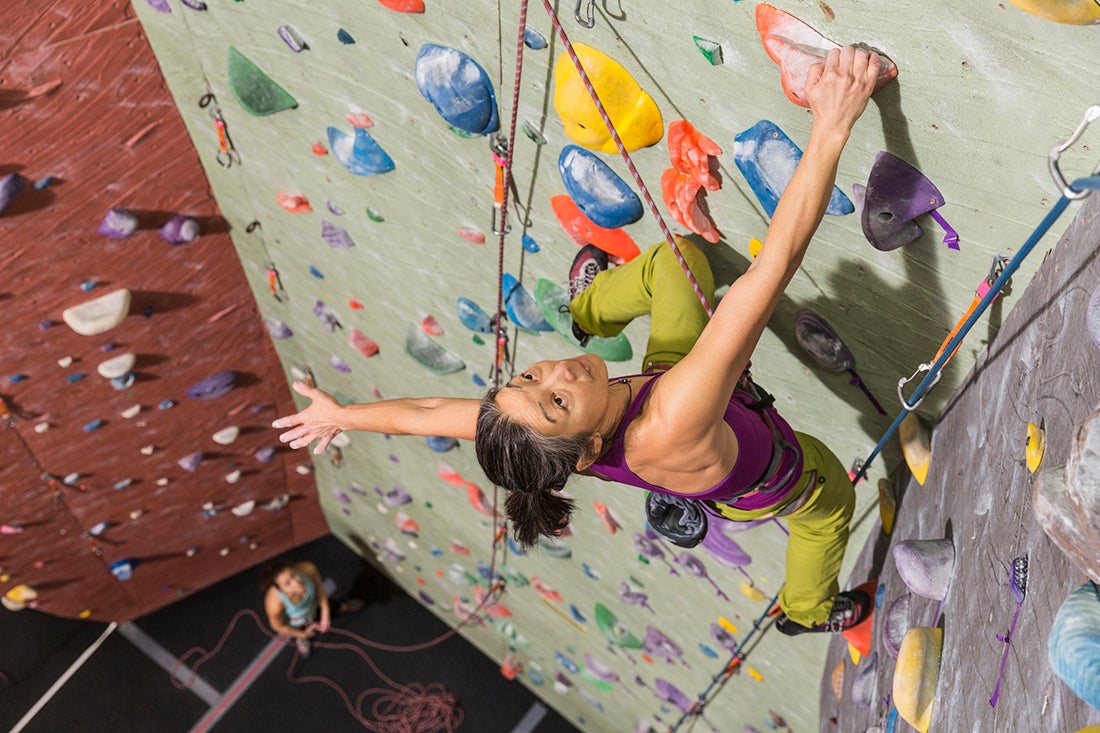Protein Vs Carbohydrates: What You Need and Why For Maximum Climbing

(Photo: Getty Images)
Marisa Michael, MSc, RDN, CSSD is a board-certified specialist in sports dietetics and author of Nutrition for Climbers: Fuel for the Send. She serves on the USA Climbing medical committee and has a private practice in Portland, Oregon. Find her online at nutritionforclimbers.com or on Instagram @realnutritiondietitian.
Once while staying in a hotel, I was jolted from sleep at 5 a.m. by some rowdy guests in another room. They were shouting obscenities, wrestling against the wall, and shouting something about a knife. Then, randomly, one of them yelled, “Joey needs some protein! Go get him some protein!” in a thick New Jersey accent.
If Joey knew so much about his protein needs, it seems like we climbers should be able to figure it out, too. So, what’s the best balance for carbs vs. protein?
Climbing demands a balanced dietary intake of both carbohydrates and protein to optimize performance and recovery.
Too little carbohydrate intake can feel like:
- Running out of steam while climbing
- Feeling weak, shaky, or irritable
- Foggy mind; missing easy safety checks or beta
- Craving carbs and sugar
Too little protein can feel like:
- Getting too hungry too fast, like your food doesn’t last
- Muscle soreness, incomplete recovery, or inability to make gains despite a good training program
- Lingering injuries that seem like they should be healed by now
Active people need more protein that the general population. Protein performs a variety of roles in the body, most notably repairing and rebuilding muscle tissue. It also plays a role in satiety and blood sugar regulation.
Carbohydrates are the body’s preferred fuel source for the brain and muscles: two things we really rely on when climbing! Adequate carb intake will help you feel strong while climbing. It also supports training demands, immunity, and may help prevent injury.
To balance your carbs and protein, you need to be aware of your own training demands. Most climbers need around three to five grams per kilogram (g/kg) of carbohydrates daily. (To figure out how many kilos you weight, divide your weight in pounds by 2.2). If you’re a multi-sport athlete that mixes some endurance training in there, such as running or demanding hikes, you’ll need up to seven to nine g/kg per day, and even more if you are in a heavy training phase for long endurance events such as a marathon or triathlon coupled with climbing.
Climbing demands around 1.2-2.2 g/kg per day of protein intake. The lower end is for normal day-to-day recreational climbing. The higher end is for a strength-building phase. It’s also useful for preserving lean mass and promoting fullness while in a calorie deficit.
Carbs are king when it comes to fueling a climbing session. If you find yourself weak, shaky, or gassed during or after climbing, add more carbohydrate immediately before and during the session. Try foods that are easy to digest and low in fiber and fat:
- Fruit and dried fruit
- Bagels
- Pretzels
- Applesauce pouches
- Graham crackers
- Gummy candy and sports gummies
- Dry low-fiber cereal (Chex, Rice Krispies, Corn Flakes)
If you are going for long, multi-pitch climbing, eat carbs every one to two hours, then layer in protein every two to four hours to feel full longer and get some sustained energy.
On an all-day climbing adventure, mix carbs and protein for fueling. Some ideas:
- Jerky, nuts, bagels, and dried fruit
- Tuna pouch, crackers, applesauce pouch
- PB&J, protein bar, gummies
With the right mix of protein and carbs, you’ll feel energized and have improved recovery to climb all the climbs.